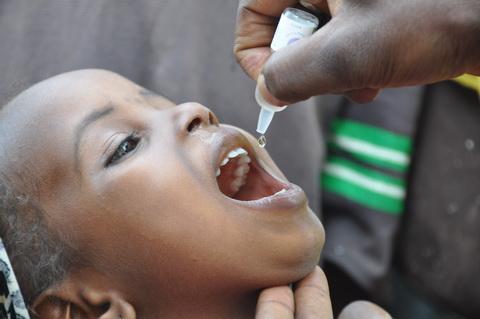67m children missed immunisation in 2 years – UNICEF
The UN Children’s Fund (UNICEF) says some 67 million children globally missed out entirely or partially on routine immunisation from 2019 to 2021 due to COVID-19. The organisation said this in its “State of the World’s Children 2023’ report. According to the Fund, vaccination coverage dropped sharply during the COVID-19 pandemic, leaving millions more children […]

immunisation
The UN Children’s Fund (UNICEF) says some 67 million children globally missed out entirely or partially on routine immunisation from 2019 to 2021 due to COVID-19.
The organisation said this in its “State of the World’s Children 2023’ report.
According to the Fund, vaccination coverage dropped sharply during the COVID-19 pandemic, leaving millions more children unprotected against some of childhood’s most serious diseases.
It added that the pandemic had been a disaster for childhood immunisation as it set immunisation back to levels last seen in 2008 in those two years, as the world lost more than a decade progress in ensuring every child was adequately immunised.
- PHOTOS: Dignitaries attend funeral of billionaire businessman, Subomi Balogun
- Court orders Obasanjo, Yar’Adua, Jonathan, Buhari govts to account for $5bn Abacha loot
The report said that between 2019 and 2021, the number of zero-dose children rose from 13 million to 18 million globally, an increase of more than a third.
It also said that there was a sharp increase in the number of under-vaccinated children, which rose from six million to 25 million.
It added that “this backsliding reflected some issues specific to the pandemic, particularly the impact of lockdowns and service disruption.
“However, it also cast a powerful spotlight on longer-term issues, including the weakness of far too many primary health care systems, which has long undermined efforts to vaccinate every child.”
The organisation identified issues that led to the decline, including strains on overstretched health systems and health workers, especially overworked women health workers, as well as confusing communication to parents.
It stated that “perhaps the most significant factor was the impact of the pandemic on primary health care and health systems.
“As previous crises have shown, countries with already weak health systems are especially vulnerable to the impacts of conflict, major disease outbreaks and natural disasters.
“The COVID-19 pandemic was no exception, as it forced many health systems to divert scarce resources away from providing routine care, including immunisation.”
It added that at the end of 2021, nearly half of 72 countries in a World Health Organisation (WHO) survey said that routine vaccination programmes were being disrupted by the need to respond to the pandemic.
Also, that the pandemic badly interrupted vaccination campaigns, which, unlike routine immunisation, usually targeted efforts to vaccinate large numbers of people in a relatively short period of time. (NAN)
